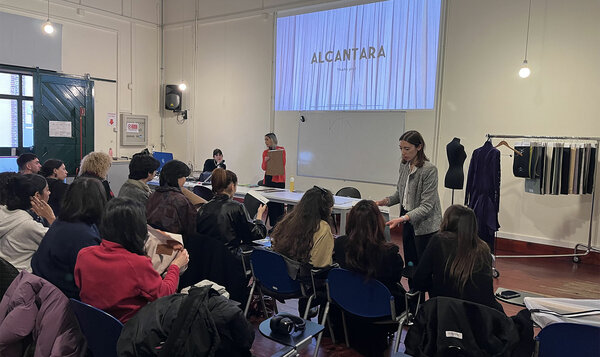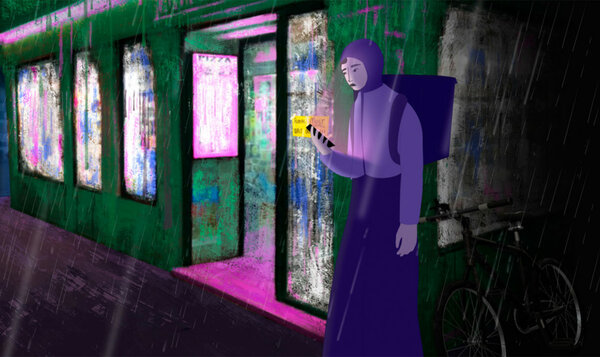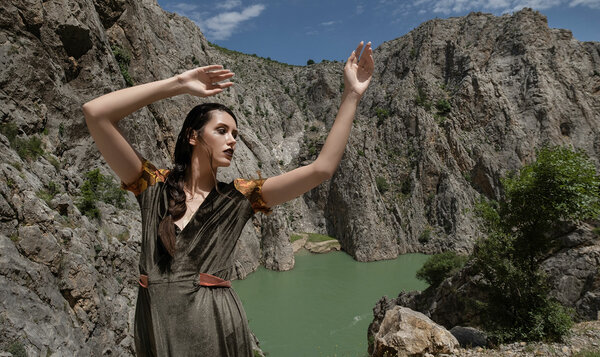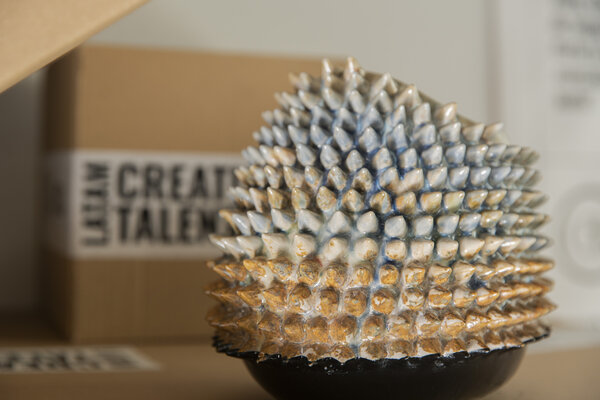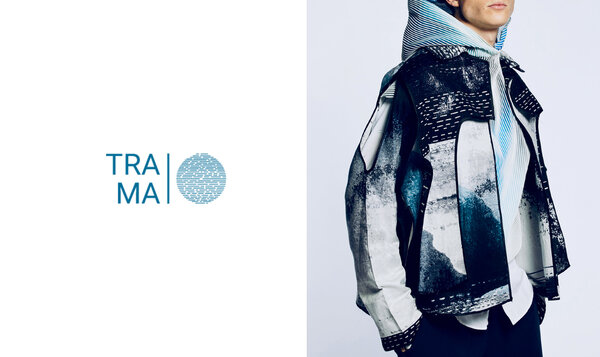
INNO-TEC-LAB
Development of opportunities in the field of design for technical careers through innovation-laboratories
The project
INNO-TEC-LAB "Development of opportunities in the field of design for technical careers through innovation-laboratories" was a Strategic Partership for Higher Education, co-funded by the Erasmus+ Program of the European Union (KEy Action 2).
The project aimed to create and validate a model based on interdisciplinarity and student-centered learning to support innovation through a network of innovation laboratories that will serve to improve learning tools, knowledge exchange, training of learners and researchers.
INNO-TEC-LAB was centered in offering educational tools for teachers, researchers, lecturers and staff of partner organizations and students of technical careers, as well as public authorities, policymakers and the business sector.
The objectives were:
- To initiate the creation of transdisciplinary framework across careers.
- To develop a digital platform that connects innovation laboratories and facilitates the generation and exchange of knowledge.

Simona Maccagnani, head of the Research Center at IED Istituto Europeo di Design, leader of the partnership, illustrated the INNO-TEC-LAB “Development of opportunities in the field of design for technical careers through innovation-laboratories” project with this short video.
Intellectual Outputs
This learning module established the general guidelines for the acquisition of new knowledge and practical experience through a pedagogical approach that defined the following aspects.
· Objectives for student learning outcomes and the competencies and skills for development.
· Specific activities to be carried out by the students.
· Communication processes and methods: peer-to-peer, student-teacher, teacher-teacher.
· Resources required for the implementation of learning activities.
· Assessment methodology.
The main goal of this learning module was to serve as a foundation for the courses that instructors will attend (train-the-trainers) and deliver (INNO-TEC-LAB).
Train-the-trainers addressed the changing role of teachers and teaching practices, covering topics such as new technologies, 21st century skills, and inclusivity. It offers the possibility to create high-quality online courses and new virtual learning environments.
After this training, teachers were able to redesign an existing course or create a new one. Transfer and potential are high, as users of the training can successfully and sustainably apply the knowledge, skills, and attitudes acquired during the training to later become highly qualified and versatile in teaching courses to students.
Through 3 training units (plus a project work) participants can:
· Reflect on how to coach and support students in their future professional steps taking inspiration from current trends in society
· Explore the relevance of different 21st century skills within teaching, such as critical thinking, inclusive communication, cross-cultural collaboration and problem-solving
· Experiment with state-of-the-art digital tools and platforms that shape a new way of teaching in these fast-changing times
· Put all the newly-acquired learnings to the test in a project where redesigning (part of) your own teaching practice
The course focused on the topic of professional development and personal branding. It consisted of three short units with some self-study and mentoring by the trainer. In fact, the teachers involved in the onlin TTT, with some others, developed the students’ courses.
The lessons were live online and on-site and students from differents universities (IED, HvA, Metropolia UAS) participated through the platform. At the end of the course, students create a final project work, consisting of a personal pitch that showed their identity as a professional and reflects on the future of their field of work.
Students developed a Spotify playlist
Supported by the IED Campus on Moodle, it has been established a shared working space in which to interact, exchange knowledge, generate content within the project and for future use.
During the implementation of the project, the platform hosted a synchronous online train-the-trainers program involving teachers, trainers and researchers from different HEIs and VET organizations, delivered in two editions. It also provided a dedicated space for the Student Courses, also in two editions, providing the opportunity to attend live sessions, interact across-institutions and gain access to useful additional resources.
Process
INNO-TEC-LAB had a duration of 24 months starting September 2020 and at the end of the Project lifecycle, INNO-TEC-LAB reached the following IOs:
- (IO1) The final version of the Learning Module was created, building on the lessons learnt through the implementation and delivery of the Train-the-Trainer (IO2) and the Student Course (IO3), as well as additional insights from the first ME in Finland which saw the involvement of both TTT trainers and learners (teachers). Of particular significance was the opportunity to review the guidelines for implementation of IO2 and IO3. The LM also included an annex reporting the results of the research phase on innovation for Education, and specifically the surveys and focus groups (FGs) that targeted the faculties, staff and lecturers of international and local HEIs.
- (IO2) The pilot and the final rounds of the online Train-the-Trainers programme were developed and jointly delivered through the platform (IO4). For the improved and defined TTT, feedback provided by trainers, learners (teachers) and the platform’s technicians was considered. The TTT, referencing the LM (IO1), provided general guidelines for trainers to develop the course, including overall structure, description of units and methodologies, objectives and learning outcomes, tools, assignment and final Project Work suggestions, and references. Guidelines have been designed for future use by HEIs interested in developing a TTT in their institutions.
- (IO3) The pilot and final rounds of the students’ were designed and delivered, in blended mode, at IED, Metropolia and HvA. This allowed for student interaction across the institutions, via the platform, and locally on-site. It also enabled the personalisation of the training within Partner organisations, and the verification of the adaptability of the course to different contexts. As per the TTT, the final course was enhanced considering feedback from teachers, students and technicians. Guidelines included the description of units, objectives and learning outcomes, tools and reference materials. Suggested assignments and final projects were also provided.
- (IO4) The platform implemented is online and active. During the project's life cycle, it acted as a repository and a collaborative workspace between Partners and supported the training and learning activities. The platform will play a significant role for the sustainability of INNO-TEC-LAB, so an upgrade plan is being developed.
WP Communication and Dissemination
The Consortium implemented and improved the plan to maximise visibility of the Project with internal and external stakeholders. The main activities regarded the dissemination of the project results on the FB page and on the project website, and Partners’ social media and websites also supported outreach. The two Multiplier Events were the subject of dedicated campaigns and actions.
The Consortium proved successful in achieving its objectives.
The IOs provided a sound strategic framework, theoretical and operational guidelines, and platforms for knowledge transfer, research, training and learning.
Multiplier Events
Two multiplier events were held at the European level aiding the dissemination and extension of the project activities and the sustainability of the project after its completion.
Project’s partners of INNO-TEC-LAB were pleased to share moments from the multiplier event that took place on the 7th of April 2022 in Helsinki, Finland.
It was a full-day hybrid event provided an excellent international platform for networking and participating in contemporary discussion with people from educational institutions and working life. It was the first time since the beginning of the project on the 14th of September 2020 that the project partners were able to meet in person.


The last INNO-TEC-LAB Multiplier Event on September 8th 2022 at the ADI Museum in Milan, Italy, was a hybrid event aimed at sharing and building on the project results with local and international stakeholders.
Two cross-sectorial panels and the hands-on workshop addressed the challenges and opportunities of innovation from the perspectives of design and technology, sustainable education and learning, inter and transdisciplinary approaches.
It was an occasion to discuss the challenges and opportunities offered in the areas of design, education and training, interdisciplinary and transdisciplinary with international guests and all the project partners.
After a presentation of the project and the results obtained by IED, two panels were organised, with the presence of international guest speakers:
- “Innovation through the evolution of the relationship between design and technology” by M. Campione, A. Gariboldi, M. Castàn Cabrero, B. Revelli
- “Systemic transformation for sustainable innovation – from inter-to-transdisciplinarity” by M. Aakesson, M. Thomson, S. DimopoulosIn Mediterranean Breviary, Predrag Matvejevic states:
Partners
The European Commission's support for the production of this publication does not constitute an endorsement of the contents, which reflect the views only of the authors, and the Commission cannot be held responsible for any use which may be made of the information contained therein.








